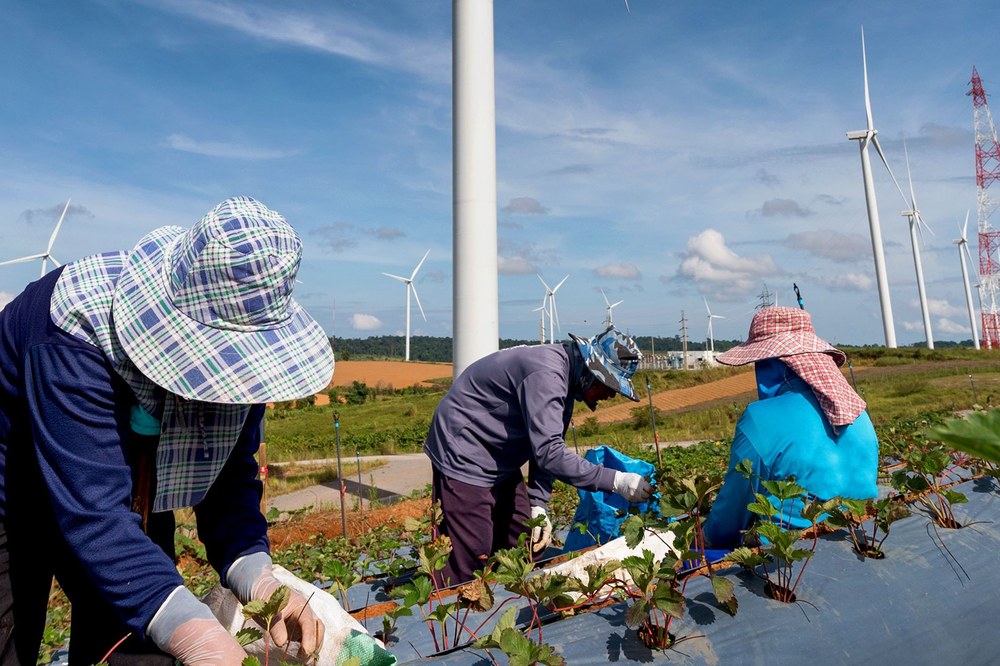Working to build a next-generation, integrated suite of models and analytic tools to understand the interdependent stressors, impacts, adaptations, and vulnerabilities of global and regional change.

Issue
The interactions between food, energy, water, and land systems are poorly understood, yet have important implications for food security, reliability of electric power supply, demographic patterns, and the resilience of communities and critical infrastructure. Additionally, exploring risk and response behaviors is a major scientific challenge for understanding system dynamics, landscape evolution, and the resilience of complex systems. Understanding and modeling multiscale, multisystem response options and cross-system implications requires not only an understanding of multisector teleconnections in the coupled human and Earth system, but also how interconnected systems are exposed to hazards that create vulnerabilities and risks for society and how societies respond to these risks.
Doing this type of work requires working on multidisciplinary teams and coupling a variety of tools including statistical tools, data products, and computational models. This Critical Issue Initiative is motivated by two central research questions:
- What strategies should be made to be resilient to the range of possible future stresses from natural systems?
- What are the impacts of potential natural shocks to the coupled system of food, land, water, energy and economic activity? and
- How do populations and physical systems respond to these risks and how do those responses feed back to the fully coupled human and natural Earth system?
Convener
Karen Fisher-Vanden, Ph.D.
Professor of Environmental and Resource Economics and Public Policy
Director, Institute for Sustainable Agricultural, Food, and Environmental Science (SAFES)
Co-Director, Program on Coupled Human and Earth Systems (PCHES)
Associated Members
Associates
- Mary Ann Bruns, Associate Professor, Soil Microbiology and Biogeochemistry
- Bradley Cardinale, Department Head, Ecosystem Science and Management*
- Patrick Drohan, Associate Professor, Pedology*
- Lara Fowler, Senior Lecturer, Penn State Law & Assistant Director IEE*
- Michael Jacobson, Professor
- Joshua Lambert, Professor, Food Science*
- Cibin Raj, Assistant Professor, Agricultural and Biological Engineering*
- Matthew Royer, Assistant Research Professor, Director Agriculture & Environment Center*
- Robert Weaver, Professor, Agricultural Economics*
Affiliates
- Elizabeth Boyer, Professor, Water Resources*
- Rachel Brennan, Associate Professor, Environmental Engineering*
- Daniel Brent, Assistant Professor
- Paige Castellanos, Assistant Research Professor*
- Anil Kumar Chaudhary, Assistant Professor, Agricultural & Extension Education*
- Guangqing Chi, Professor, Rural Sociology, Demography & Public Health Sciences*
- Kenneth Davis, Professor of Atmospheric & Climate Science*
- Erika Ganda, Assistant Professor, Food Animal Microbiomes*
- Meetpal Kukal, Assistant Research Professor, Agricultural and Biological Engineering*
- Zhen Li, Associate Professor of Energy and Environmental Economics
- Bruce Logan, Professor, Agricultural Economics *
- Carolyn Lowry, Assistant Professor*
- Marc McDill, Associate Professor, Forest Management
- Felipe Montes, Assistant Research Professor, Plant Science
- Robert Nicholas, Associate Research Professor*
- Heather Randell Assistant Professor, Rural Sociology & Demography
- Andrew Read, Director, Huck Institutes of the Life Sciences*
- Rui Shi, Assistant Professor, Chemical Engineering*
- Hong Wu, Stuckeman Career Development Assistant Professor in Design*
- Katherine Zipp, Associate Professor, Environmental & Resource Economics*

